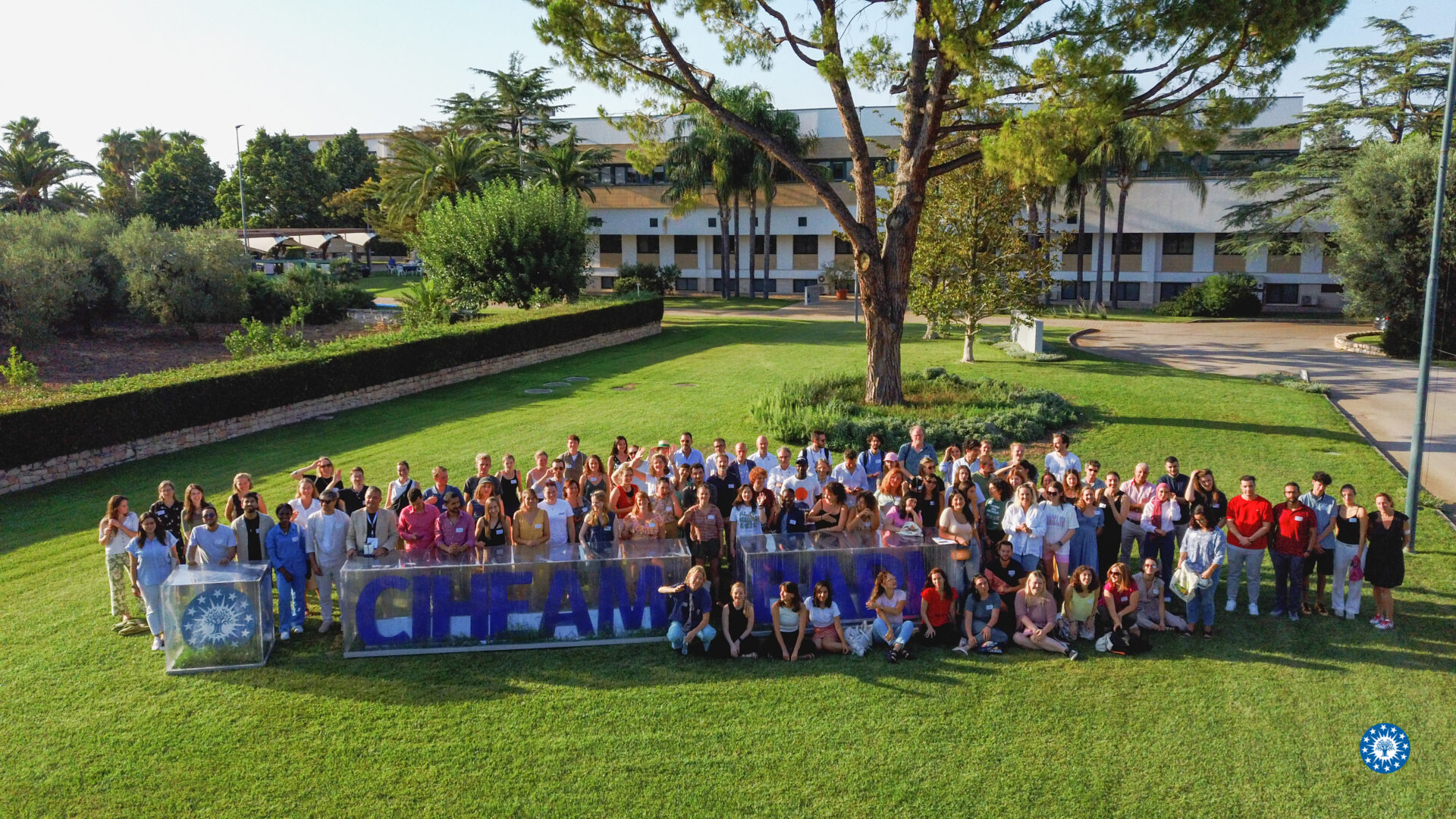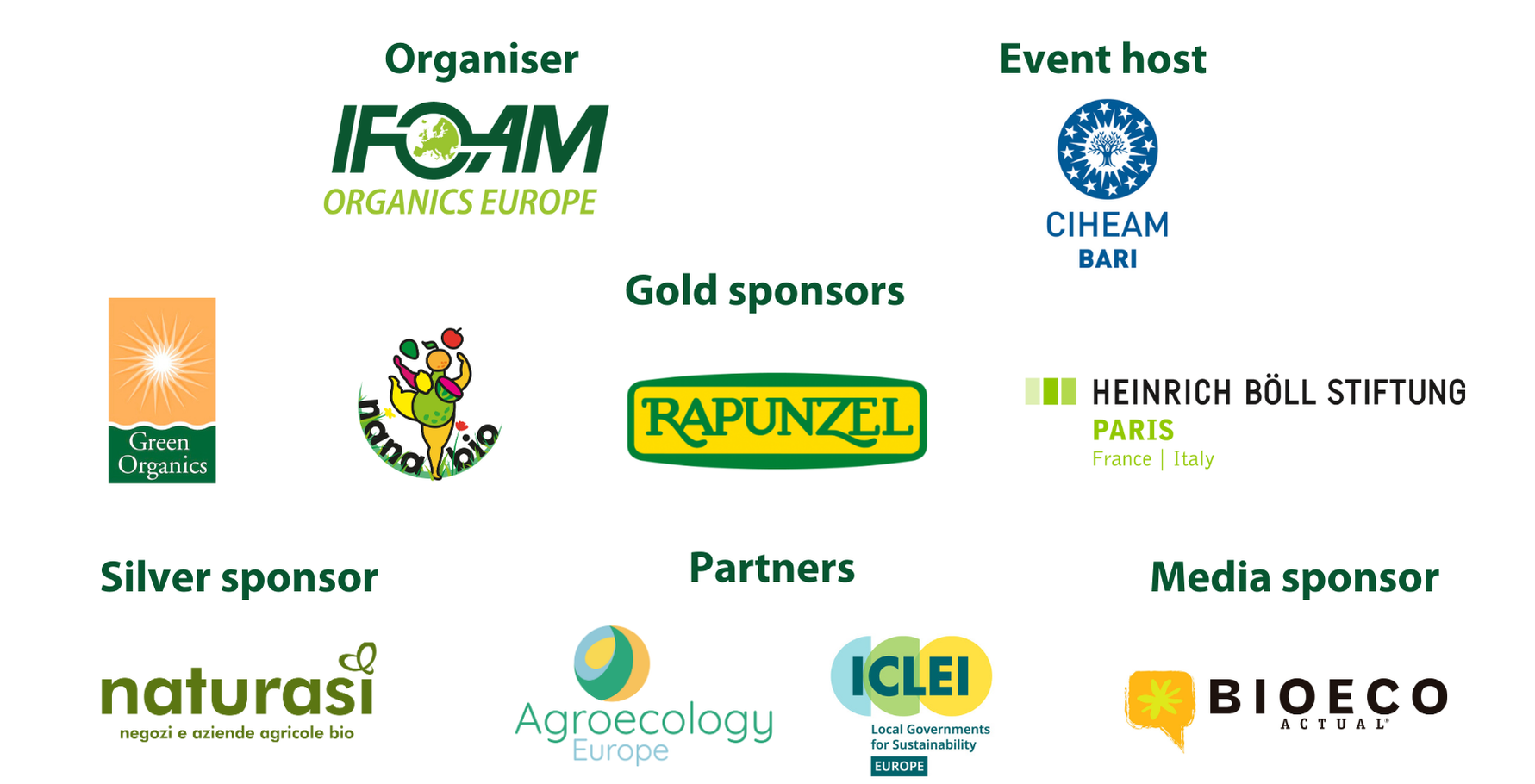Building resilient food futures across generations – Organics Europe’s Youth Event take-aways
The second edition of the Organics Europe Youth Event (OEYE) was held at CIHEAM Bari, Italy, on July 8-9, 2024. This vibrant and exciting event provided an inspiring platform for meaningful exchanges on topics crucial to the organic and like-minded movements. It marked a significant milestone in our effort to mobilize, unite, and engage the new generation within the European organic movement, fostering a supportive community where young people can collaborate and find inspiration.
Participants at the event had the opportunity to delve into a variety of discussions, lectures, and interactive sessions led by prominent figures in organic and sustainable agriculture. Notable speakers included Ronald van Marlen, General Director of NaNa Bio, and Dr. Vandana Shiva, a renowned environmental activist, food sovereignty advocate, and scholar. Their contributions, along with those of other experts, helped illuminate critical aspects of organic agriculture and resilient food systems. After the event, participants had also the opportunity to join two excursions to an organic olive oil mill and an organic pasta factory to witness first-hand Italian organic production.
The event was a fertile ground for generating important insights and considerations about the future of organic farming. Both speakers and participants shared visions and ideas, providing valuable guidance for the future of the organic movement.
We selected 10 key takeaways that best reflect the main messages and themes explored during the event. These takeaways were selected also based on input provided by participants at the event:
- Over 130 young (potential) future organic leaders from all over Europe and the world joined the youth event in Bari, committed to building a more resilient and sustainable food system. Their enthusiasm and dedication to making the world a better place were evident throughout the event, as they actively engaged with speakers and shared their visions for the future of organic agriculture. We are grateful to all participants for their inspirational presence and hope they returned home motivated and inspired.
- Our panel on organic, agroecology, biodynamic, and regenerative agriculture showed that all these farming systems share key principles and want to regenerate our soils and make food production more sustainable. We already collaborate with many of these actors, and we seek positive collaboration with those who don’t have a legally defined standard but share similar goals and are not being used for greenwashing purposes.
- Biodistricts also have a sustainable farming approach and make local economies more resilient, fostering rural community development. Participants learned about examples from Italy and Germany and their potential to create jobs, preserve traditional farming knowledge, and transform rural areas into vibrant communities.
- Dr. Vandana Shiva highlighted organic’s pivotal role in ecological activism, encouraging everyone to take action, and highlighting how individuals have the power to build a robust movement for a resilient food system. She also called on the audience to empower young people and actively engage in this effort.
- Access to knowledge is crucial for young organic entrepreneurs. Because organic is knowledge-intensive, open knowledge exchange and innovation are essential for organic businesses, particularly for those new to the sector. Policies can encourage this! Read more in our manifesto.
- Ronald van Marlen emphasised the organic sector’s need to reclaim its narrative, positioning organic practices as a powerful driver of positive change in both society and agriculture. He also underscored the importance for organic to remain at the forefront of a wider social movement, highlighting its potential as a socio-economic model contributing to health, environmental protection, and fairness in agriculture.
- Ensuring the organic movement’s progress requires having the right people in the right positions. We need forward-thinking leaders and conscious policymakers who are willing to address the challenges faced by our food systems. Generational renewal plays a pivotal role in this endeavour, and active youth participation promises a vibrant future for organic.
- The event highlighted the importance of nurturing diversity and open-mindedness within the organic movement. By embracing different voices, perspectives, and approaches, and aligning with allied movements, we can strengthen our impact.
- (Organic) certification is an important instrument of transparency and the only way not to succumb to greenwashing. Certification can safeguard the rights of consumers and organic producers and ensure that sustainability is no longer just a tagline for companies.
- Our youth event was more than learning by attending panels. Participants could connect and network during coffee breaks and networking apéro, joined a yoga session, quizzes, and games, and sweated it off during a dance hall animated by local folk music artists!
Looking ahead, we remain committed to motivating, inspiring, and empowering young people to make a significant impact within the organic movement.
Couldn’t attend the event, but would like to take a peek of its memorable moments? Have a look at our Instagram account.
Stay tuned for the next edition of the Organics Europe Youth Event by subscribing to our newsletter at www.organicseurope.bio/newsletter and following @OrganicsEurope on Twitter, LinkedIn, Instagram and Facebook.
Feel free to contact [email protected] if you have any questions.



The work of IFOAM Organics Europe on this topic is co-financed by the LIFE programme of the European Union, under the Climate, Infrastructure and Environment Executive Agency (CINEA). This page only reflects the views of the authors and its sole responsibility lies with IFOAM Organics Europe. The CINEA is not responsible for any use that may be made of the information provided.

